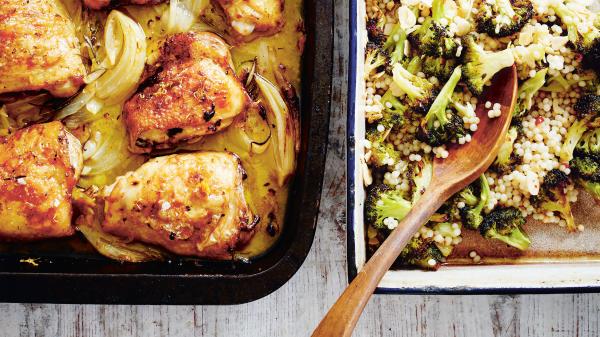May 1 – 7, 2017 | Mental Health Week
Ten Things You Can Do For Your Mental Health
- Value yourself:
Treat yourself with kindness and respect, and avoid self-criticism. Make time for your hobbies and favorite projects, or broaden your horizons. Do a daily crossword puzzle, plant a garden, take dance lessons, learn to play an instrument or become fluent in another language.
- Take care of your body:
Taking care of yourself physically can improve your mental health. Be sure to, eat nutritious meals, avoid cigarettes, drink plenty of water, exercise, which helps decrease depression and anxiety and improve moods, & get enough sleep. Researchers believe that lack of sleep contributes to a high rate of depression in college students.
- Surround yourself with good people:
People with strong family or social connections are generally healthier than those who lack a support network. Make plans with supportive family members and friends, or seek out activities where you can meet new people, such as a club, class or support group.
- Give yourself:
Volunteer your time and energy to help someone else. You’ll feel good about doing something tangible to help someone in need — and it’s a great way to meet new people.
- Learn how to deal with stress:
Like it or not, stress is a part of life. Practice good coping skills: Try One-Minute Stress Strategies, do Tai Chi, exercise, take a nature walk, play with your pet or try journal writing as a stress reducer. Also, remember to smile and see the humor in life. Research shows that laughter can boost your immune system, ease pain, relax your body and reduce stress.
- Quiet your mind:
Try meditating, Mindfulness and/or prayer. Relaxation exercises and prayer can improve your state of mind and outlook on life. In fact, research shows that meditation may help you feel calm and enhance the effects of therapy.
- Set realistic goals:
Decide what you want to achieve academically, professionally and personally, and write down the steps you need to realize your goals. Aim high, but be realistic and don’t over-schedule. You’ll enjoy a tremendous sense of accomplishment and self-worth as you progress toward your goal.
- Break up the monotony:
Although our routines make us more efficient and enhance our feelings of security and safety, a little change of pace can perk up a tedious schedule. Alter your jogging route, plan a road-trip, take a walk in a different park, hang some new pictures or try a new restaurant.
- Avoid alcohol and other drugs:
Keep alcohol use to a minimum and avoid other drugs. Sometimes people use alcohol and other drugs to “self-medicate” but in reality, alcohol and other drugs only aggravate problems.
- Get help when you need it:
Seeking help is a sign of strength — not a weakness. And it is important to remember that treatment is effective. People who get appropriate care can recover from mental illness and addiction and lead full, rewarding lives.
Source: https://www.uhs.umich.edu/
Nutrition Labels To Look Out For
There are plenty of tricky terms in the supermarket. Don’t let these misleading labels fool you!
Natural – These foods contain no artificial colours of additives, but they may still be full of sugar, sodium and fat.
Light – This can mean a product has fewer calories and less fat or sodium than the original version, or it may simply refer to flavour of colour (as it does with olive oil)
85% Lean – Sounds like a smart choice when buying ground beef, but its still 15% fat (about 13 grams per burger). Opt for at least 90% lean instead.
Multigrain – The food contains many kinds of grains, but not necessarily any whole grains or fiber.
Hormone Free – This is meaningless on poultry packaging because laws prohibit farmers from giving chicken growth hormones
Made With Real Fruit – Just because a sugary processed food like cereal, or a toaster pastry has a smidge of dehydrated fruit, that doesn’t make it good for you.
Less Sodium – This product isn’t necessarily low in sodium; it just has less than the original version
Good Source Of ___ – Sounds like it means a slam dunk as a source of fiber, calcium or other nutrients, but it really means you’re getting 10% to 19% of the daily value
Produce Cheat Sheet:
Save bucks by buying organic only when it comes to the “Dirty Dozen”, the fruits and veggies listed here, which have the highest levels of pesticide residue.
Apples
Celery
Strawberries
Peaches
Spinach
Nectarines
Grapes
Bell Peppers
Potatoes
Blueberries
Lettuce
Kale/Collard Greens
Source: Nutrition.about.com
Healthy Living Tip:
Breathe. Deeply. Oxygen is a vital source of life. You may know how to breathe, but are you breathing properly? Most of us don’t breathe properly — we take only shallow breaths and breathe to 1/3 of our lung capacity. Athletes are coached proper breathing techniques to get their best performance. A full breath is one where your lungs are completely filled, your abdomen expands, and there’s minimum movement in your shoulders.
Healthy Transformations

| Ingredients | |
| • | 1 Tbl coconut, slivered |
| • | 2 ½ oz chicken, broiled |
| • | 2 Tbls orange juice |
| • | 1 cup couscous, cooked |
| • | 1 tsp soy sauce, lite |
| • | ¼ tsp honey |
| • | 2 ½ Tbls almonds, slivered |
Spices / Flavoring |
|
| • | ¼ tsp cinnamon |
| • | ¼ tsp salt, lite |
| • | ¼ tsp black pepper |
| • | ¼ tsp ginger |
Preparation:
Set cooked couscous aside.
Combine liquid ingredients and seasonings, as desired, and simmer over medium heat until liquid is reduced by half.
Add remaining ingredients and serve over couscous.
Enjoy!
Per serving: 418 calories, 29g protein, 14g total fat, 44g carbohydrates.
Source: Healthy Transformations Recipes









